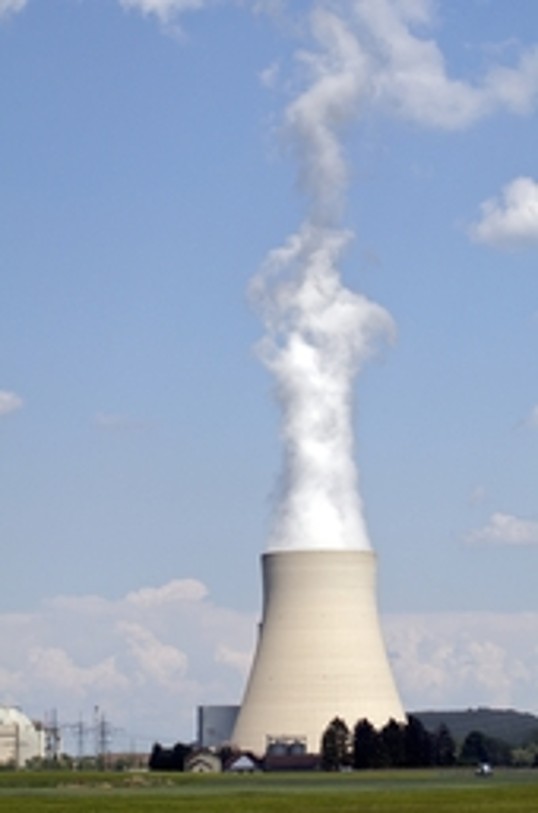Relatively low accident risk and severity

Source: © Peter Maszlen - Fotolia.com
Germany is radically overhauling its energy policy. The national government's plans are for at least 35% of the country's energy to be generated from solar, wind and other sustainable energy sources by 2020. These sources currently account for 17% of the energy supply. Germany does not intend to use nuclear energy in the future. The decommissioning of nuclear power plants is a long and arduous process requiring particular care. How can workplaces at nuclear power plants be made safe? Thomas Ludwig, responsible for the field of radiation protection at the BG ETEM, answers questions on the subject.
In order to assure occupational safety for workers in nuclear power plants, the tasks and duties of employers and employees are described in state regulations and those of the German Social Accident Insurance institutions. Do these regulations also cover the work associated with decommissioning?
Ludwig: Yes, all relevant OSH rules and regulations are of course also applicable to decommissioning work. These regulations are to be found in particular in accident prevention regulation (UVV) BGV C16 governing nuclear power plants, the German Ordinance on Radiation Protection, and the requirements derived from the licensing procedures for nuclear power plants under German law.
Some nuclear power plants have already been decommissioned. What experience was gained in the process?
Ludwig: Decommissioning of Germany's first nuclear power plant, in Kahl, was begun over 25 years ago. Since then, several plants have been decommissioned, and others are currently undergoing decommissioning. A wealth of experience has therefore been gained in the techniques, organization and planning of the process. This also includes the form to be taken by the measures needed for protection against radiation and for occupational safety and health, particularly when work is commissioned from outside companies. Owing to the numerous protective measures taken, the incidence and severity of accidents are low compared to other industrial decommissioning projects.
Ionizing radiation constitutes a particular hazard in a nuclear power plant. Plant components are dismantled during decommissioning. Unsealed radioactive substances, and therefore contamination, may also present a hazard. How is protection against contaminated components assured for employees?
Ludwig: The protective measures are geared to the requirements presented by decommissioning. The objective is always for employees to be exposed to the lowest possible direct radiation. This can be achieved for example by minimizing the time spent within radiation fields, or by the fitting of additional screens. The maintenance of a substantial distance to radiation sources is a very effective measure. A risk of incorporation, i.e. the ingestion or inhalation of radioactive substances in the body, is prevented by technical measures such as encapsulation with exhaust equipment and personal protective equipment such as respiratory protection.
Contaminated components are decontaminated by mechanical and chemical methods, and may leave the nuclear power plant only if their residual contamination lies below the permissible limit values. The great majority of components are returned in this way to the circular flow of materials.
During decommissioning, outside companies are involved which do not routinely work in such an environment and are not familiar with the safety regulations. What can the operator of the power plant do in order to assure the safety of these workers?
Ludwig: The protective measures which must be observed by an outside company are defined in detail at the planning stage of a decommissioning project. The observance of these requirements is essential before work in the nuclear power plant may begin.
Before an employee of an outside company begins a task in a nuclear power plant, he or she must undergo comprehensive training. This familiarizes the employee with the hazards on the site of the plant. Through special arrangements for the management of outside companies, the operator ensures that the employees are able to work safely. Measures include the conducting of risk assessments prior to the work, special authorization procedures and instructions relating to particular workplaces, and regular inspections by the OSH professionals, co-ordinators and radiation safety experts.
Has a radiation accident ever occurred during decommissioning work?
Ludwig: Under the German Ordinance on Radiation Protection, a radiation accident is an occupational incident which may have exposed a worker to a dose of over 50 mSv (millisievert). To date, no such incident has occurred during decommissioning work.
A suitable image for the article can be found at http://commons.wikimedia.org/wiki/File:AKW_Leibstadt.jpg
More interviews on the following topics
